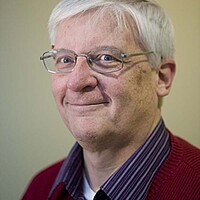William Schulz: The UUSC stands with those in need
| Boston
In 1939 Frederick May Eliot, president of the American Unitarian Association, was looking for a volunteer willing to go to Europe to help refugees escape Nazi persecution. He contacted 16 ministers, who all turned him down.
But the 17th, the Rev. Waitstill Sharp, said yes. Together with his wife, Martha, he helped refugees make a dangerous journey across the Pyrenees to Lisbon, where they were able to board boats to freedom. The couple returned again in 1940, this time under the auspices of the newly formed Unitarian Service Committee.
Today the Sharps are celebrated as pioneer human rights workers. In 2006, they were named Righteous Among the Nations, an honor bestowed by the state of Israel on non-Jews who have performed heroic acts on behalf of Jews.
This year the efforts of the Sharps and others are being recalled by what is now known as the Unitarian Universalist Service Committee as it commemorates its 75th anniversary. Over the subsequent decades the UUSC has helped people in need around the world, from Japanese-Americans displaced by the US government during World War II to Nigerians as their country moved toward independence from Britain in the 1950s.
The 75th anniversary was also marked by an exhibition at the Harvard Divinity School in Cambridge, Mass., the city that also is home to the UUSC.
“We see the past as an inspiration for us to actually move into the future, following the kind of principles that the Sharps and other founders established for us,” says the Rev. Dr. William Schulz, president and chief executive officer of the UUSC. “It’s a bedrock principle of Unitarian Universalists that all human beings have inherent worth and dignity,” he notes, calling it “our obligation when that worth and dignity are under threat to stand in solidarity with those people.”
Today the UUSC works in three areas: environmental justice, with an emphasis on climate change and the right to clean water; economic justice, focusing on fair working conditions; and “rights at risk,” which includes those in need either because of natural disasters or corporate or government actions.
The UUSC calls on volunteers and partners with local groups who have innovative ideas for solutions.
“It’s very important that we don’t impose our own one-size-fits-all template on everybody,” Mr. Schulz says.
Following the 2010 earthquake in Haiti, for example, most foreign aid was going into the capital, Port-au-Prince, with very little reaching the more remote central plateau. UUSC worked with a local agronomist, Chavannes Jean-Baptiste, who runs The Papaye Peasant Movement, to create a series of six self-sustaining rural eco-villages that today house close to a thousand people, Schulz says.
While the UUSC may not rank among the largest human rights groups, it has remained steadfast in its purpose over three-quarters of a century.
“We’re casting our small mites of power on the side of those who are at risk and under oppressive economic and political structures,” Schulz says. “That’s why we do the work.”
• To learn more visit the UUSC website at www.uusc.org.







